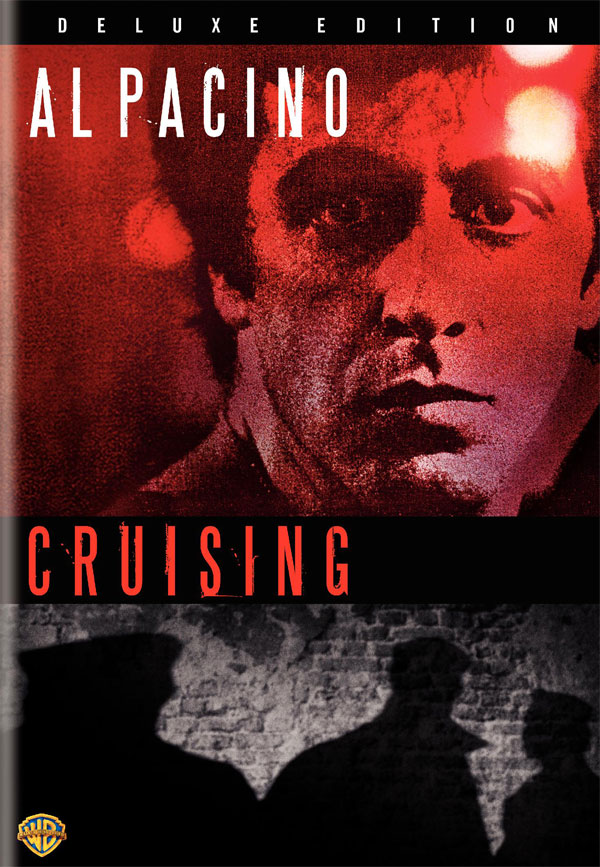Alfredo James Al Pacino, widely known by his stardom name “Al Pacino”, is a prominent Hollywood actor, known for his villain roles in numerous outstanding films such as The Godfather, The Devil’s Advocate, The Recruit, Ocean’s Thirteen, and many more. Al Pacino is the symbol of the entire epoch, introducing new values to modern people, and promoting them in a very charismatic way. In the following paper, his relationship to social values will be discussed.
The historical moment, during which Al Pacino is famous, is rather prolonged. His success time came, beginning from his roles in The Godfather sequel. One of the most historically remarkable films in his career was “Cruising” (1980) (Fig. 1). In this film, Al Pacino stars as Steve Burns, a policeman who is ordained to find a vicious killer, cruelly murdering homosexual men.

Viewers have different opinions about his personage’s real attitude to homosexuality, but it can be said for certain that this role by Al Pacino is very significant in attracting wide public’s attention to the issue of homosexual behavior.
In his broad filmography, Al Pacino represents a variety of social norms and ideals. If to return to “Cruising” movie, it is necessary to state that in it, the actor promotes social values and standards that tend to oppose homosexuality rather than support it. For example, he is shown as the man in love and sexual relations with a woman. In addition, certain hints from the movie plot suggest that he is the very killer, who murders homosexual men because of their sexual orientation. His role caused a vigorous response in the written press and song industry. Mostly, famous people promoted ideas, rejecting homosexuality as the reason for serious diseases extensions such as AIDS and other sexually transmitted diseases, and a kind of corrupting the nation.
Although there are no significant ideological conflicts, embodied by Al Pacino in his films, a few of them can be still found. For example, in The Recruit (2003), the actor seems to defend Russian ideology in the secret activity of his character. During this period, the other actors address similar ideas in their personages. The other ideological conflict is often seen in Al Pacino’s roles in such movies as The Godfather, The Devil’s Advocate, and Ocean’s Thirteen. The essence of this conflict is in promoting criminal values and money acquiring against moral values such as loyalty, friendship, honesty, and trustfulness. Al Pacino’s villain roles in those movies present a row of serious moral and ethical issues to the audience. Of course, he is not the only actor, addressing this moral conflict in one’s work. Among such actors are also Robert De Niro, Andy Garcia, Vincent Cassel, and many more.
In conclusion, it should be stated that Al Pacino’s relationship to social norms can be seen in different films as an ambiguous matter. Particularly, films such as “Cruising” represent him as the promoter of traditional values such as love between men and women. The other films, where he plays villains, show him as a corrupted man, trapped by criminality, passion for money, and fame.
Bibliography
Barnard, Timothy. “Hollywood.” In American Masculinities: A Historical Encyclopedia, edited by Bret E. Carroll, 212-16. Thousand Oaks, CA: SAGE Publications, Inc., 2004.
Piirto, Jane. “Film and Film-Making Gifted.” In Encyclopedia of Giftedness, Creativity, and Talent, edited by Barbara Kerr, 357-59. Thousand Oaks, CA: SAGE Publications, Inc., 2009.